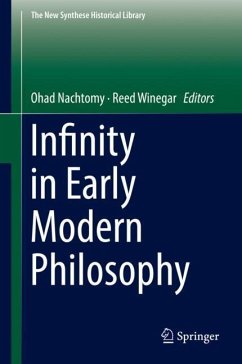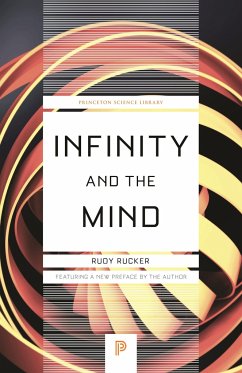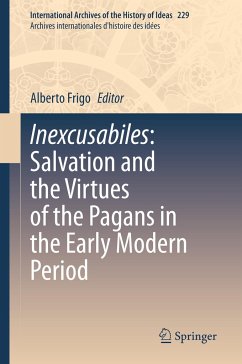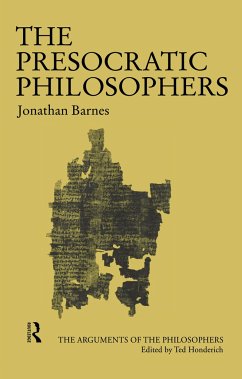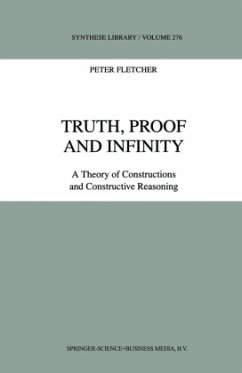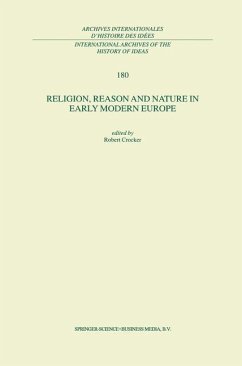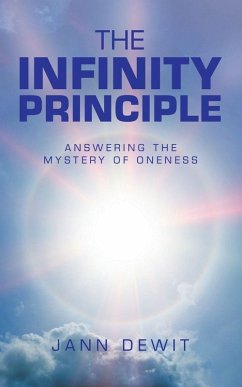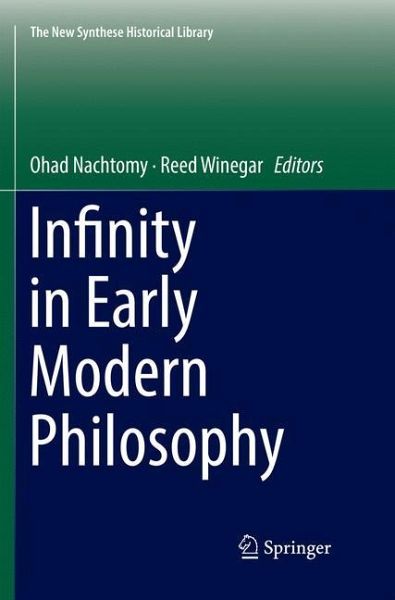
Infinity in Early Modern Philosophy
Versandkostenfrei!
Versandfertig in 6-10 Tagen
61,99 €
inkl. MwSt.

PAYBACK Punkte
31 °P sammeln!
This volume contains essays that examine infinity in early modern philosophy. The essays not only consider the ways that key figures viewed the concept. They also detail how these different beliefs about infinity influenced major philosophical systems throughout the era. These domains include mathematics, metaphysics, epistemology, ethics, science, and theology.Coverage begins with an introduction that outlines the overall importance of infinity to early modern philosophy. It then moves from a general background of infinity (before early modern thought) up through Kant. Readers will learn abou...
This volume contains essays that examine infinity in early modern philosophy. The essays not only consider the ways that key figures viewed the concept. They also detail how these different beliefs about infinity influenced major philosophical systems throughout the era. These domains include mathematics, metaphysics, epistemology, ethics, science, and theology.
Coverage begins with an introduction that outlines the overall importance of infinity to early modern philosophy. It then moves from a general background of infinity (before early modern thought) up through Kant. Readers will learn about the place of infinity in the writings of key early modern thinkers. The contributors profile the work of Descartes, Spinoza, Leibniz, and Kant.
Debates over infinity significantly influenced philosophical discussion regarding the human condition and the extent and limits of human knowledge. Questions about the infinity of space, for instance, helped lead to the introduction of a heliocentric solar system as well as the discovery of calculus. This volume offers readers an insightful look into all this and more. It provides a broad perspective that will help advance the present state of knowledge on this important but often overlooked topic.
Coverage begins with an introduction that outlines the overall importance of infinity to early modern philosophy. It then moves from a general background of infinity (before early modern thought) up through Kant. Readers will learn about the place of infinity in the writings of key early modern thinkers. The contributors profile the work of Descartes, Spinoza, Leibniz, and Kant.
Debates over infinity significantly influenced philosophical discussion regarding the human condition and the extent and limits of human knowledge. Questions about the infinity of space, for instance, helped lead to the introduction of a heliocentric solar system as well as the discovery of calculus. This volume offers readers an insightful look into all this and more. It provides a broad perspective that will help advance the present state of knowledge on this important but often overlooked topic.





